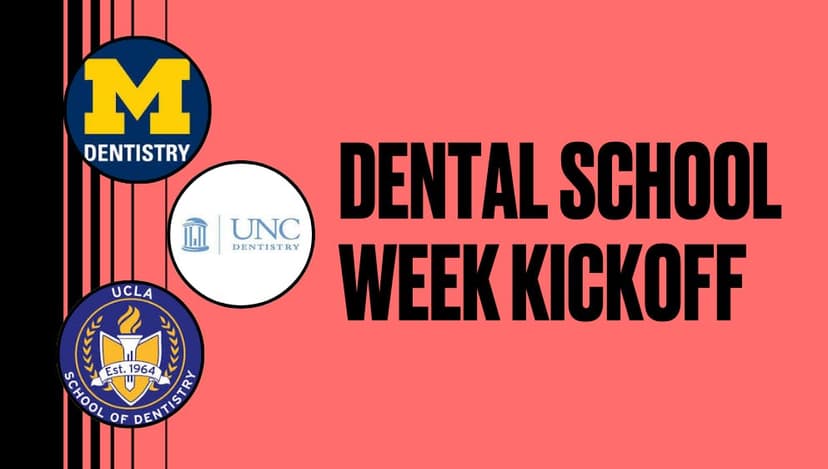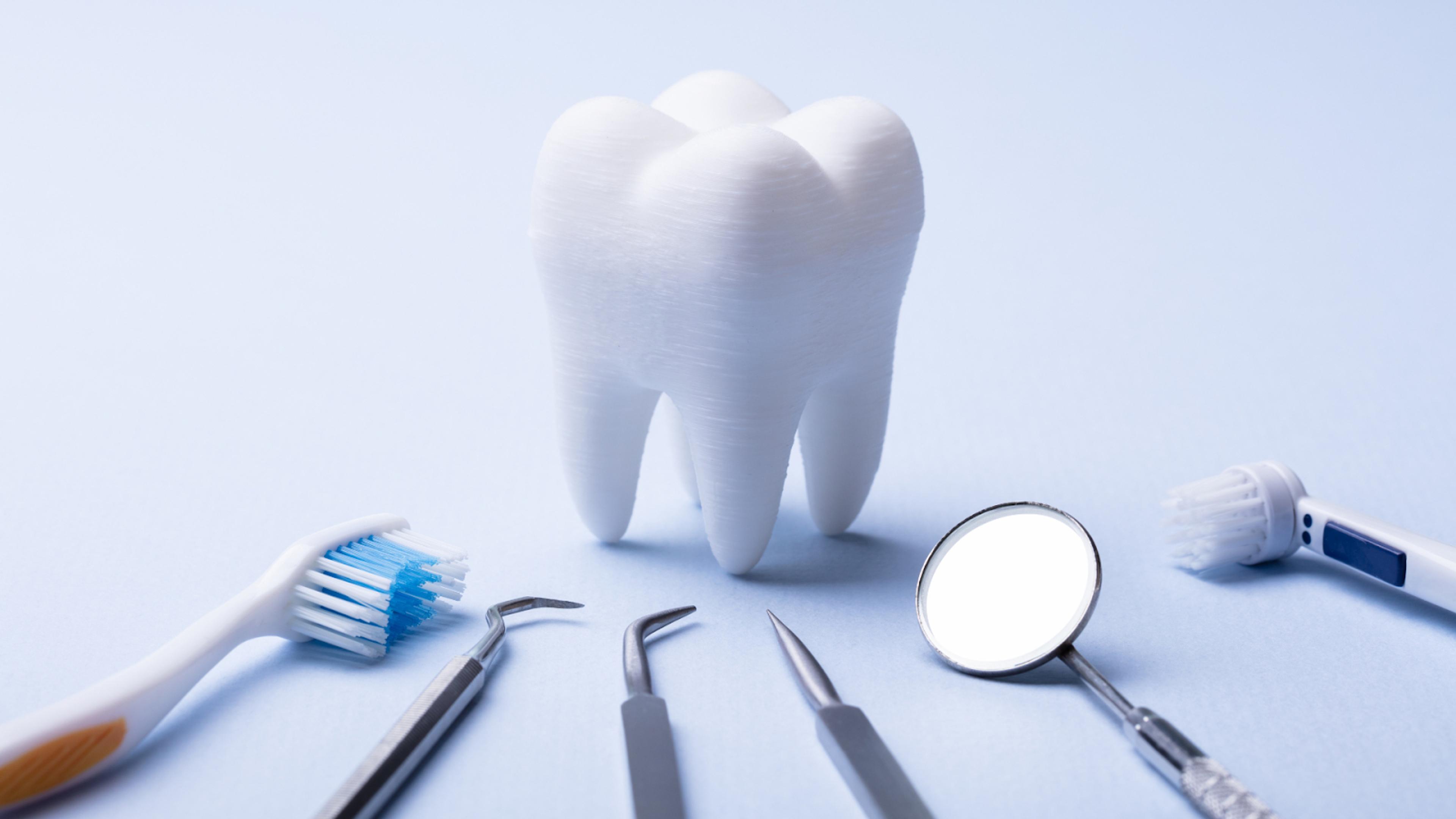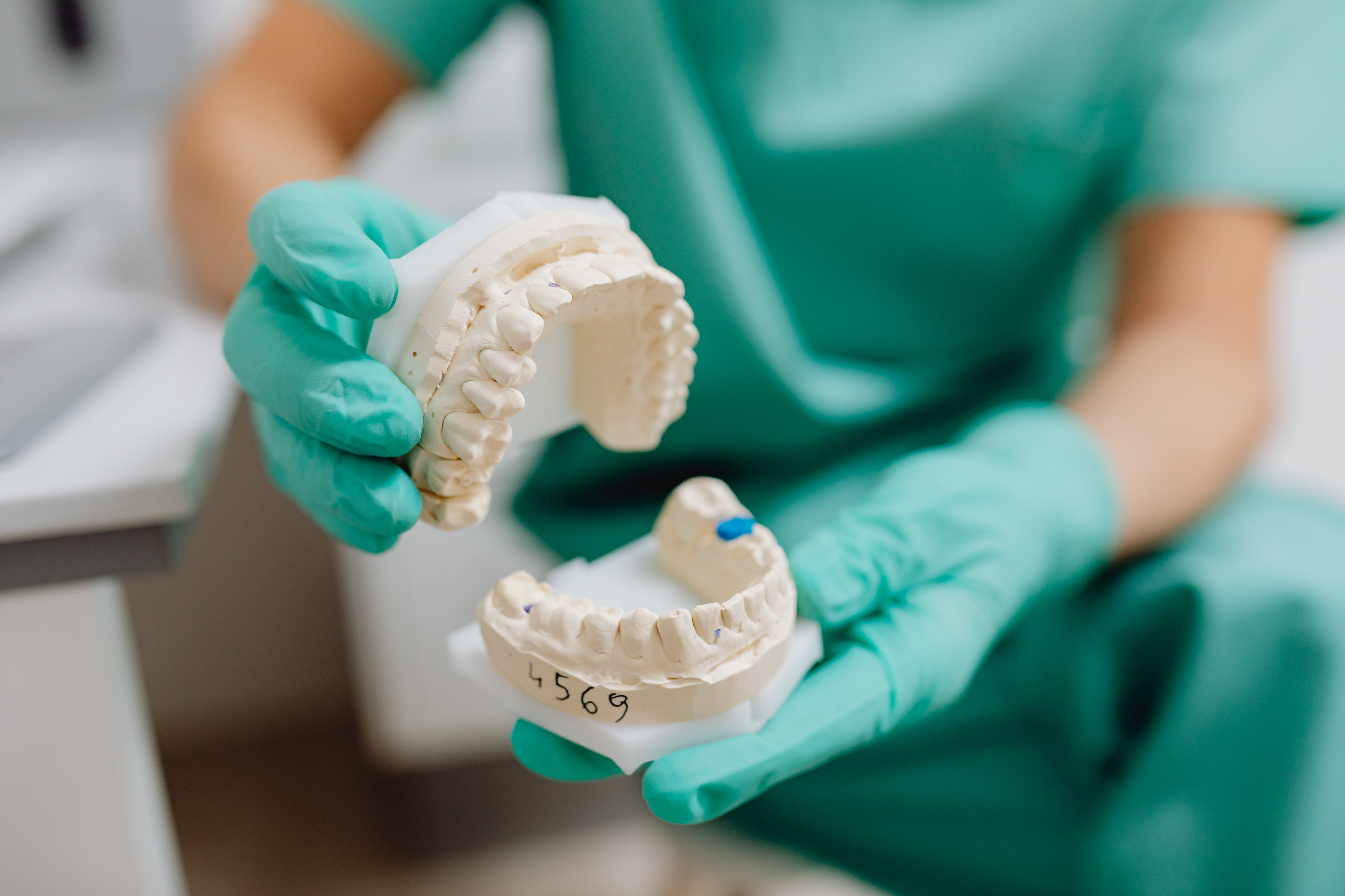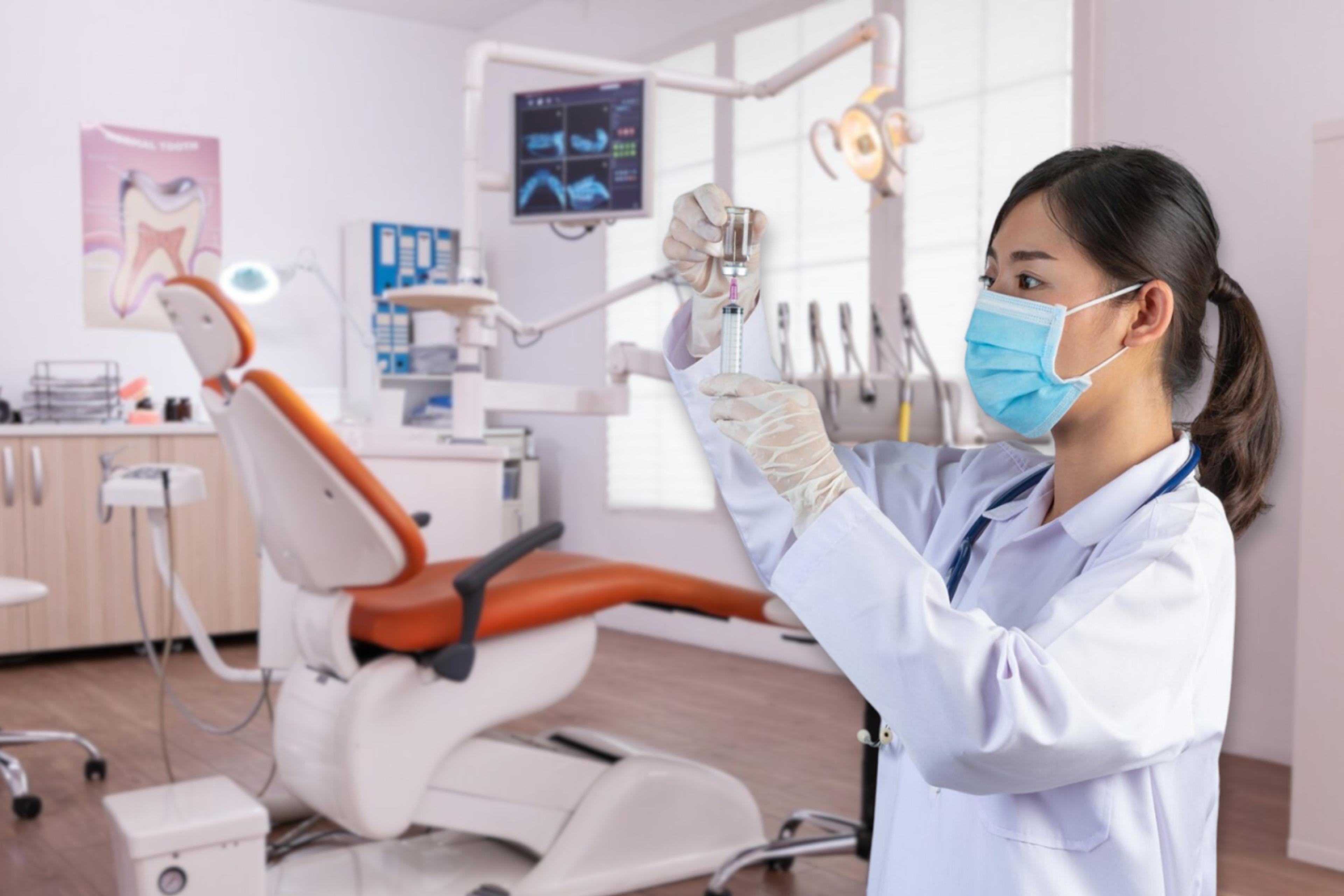How to Get Into Dental School with a Low GPA
If you're worried about getting into dental school with a low GPA, don't panic! Our comprehensive guide will provide you with valuable tips and strategies to help you improve your chances of getting accepted into dental school.
Posted June 13, 2025

Join a free event
Learn from top coaches and industry experts in live, interactive sessions you can join for free.
Table of Contents
Aspiring dental students often find it challenging to secure admission into dental schools with a less-than-ideal grade point average (GPA). While dental schools consider several factors besides the GPA, such as extracurricular activities, work experience, and recommendation letters, a low GPA can still prove to be an obstacle for many applicants.
The Importance of a Strong Personal Statement
A robust personal statement can often compensate for a low GPA. Your personal statement is your opportunity to communicate your passion for dentistry, your personal and professional goals, and your unique experiences and achievements. It's important to showcase your personality through your writing, as this could distinguish you from other applicants with similar GPA scores. Dedicate ample time to writing and editing your personal statement to ensure that it compliments your application.
One important aspect to consider when writing your personal statement is to tailor it to the specific dental school you are applying to. Research the school's mission statement, values, and curriculum to understand what they are looking for in a candidate. This will allow you to highlight your strengths and experiences that align with the school's values and goals.
Another key element to include in your personal statement is your understanding of the dental profession and your motivation for pursuing a career in dentistry. Admissions committees want to see that you have a clear understanding of the field and that you are committed to making a positive impact on patients' lives. Be sure to convey your passion for dentistry and your desire to contribute to the field in a meaningful way.
Tips for Choosing the Right Dental Schools to Apply To
It's essential to research and target the right dental schools for your application. Consider factors such as the school's admission requirements, location, culture, curriculum, and opportunities for hands-on learning to make an informed decision. Focus on schools that value extracurricular activities, leadership, and community service more than a high GPA.
Another important factor to consider when choosing dental schools to apply to is the faculty and their expertise. Look for schools with experienced and knowledgeable faculty members who are actively involved in research and clinical practice. This will ensure that you receive a high-quality education and have access to the latest advancements in the field of dentistry. Additionally, consider the school's network and connections within the dental industry, as this can provide valuable opportunities for internships, mentorship, and job placement after graduation.
Strategies for Improving Your GPA Before Applying
If you feel that your GPA might be limiting your chances of admission, consider retaking courses to improve your grades. Alternatively, you can take additional courses to show your aptitude and dedication to your academic discipline.
Another strategy for improving your GPA is to seek out tutoring or academic support services. Many universities offer free tutoring services to students who need extra help in specific subjects. Additionally, you can form study groups with classmates to review course material and prepare for exams together.
It's also important to prioritize your time and manage your workload effectively. Make a schedule and stick to it, setting aside dedicated study time each day. Avoid procrastination and stay on top of assignments and readings to ensure that you are fully prepared for exams and assignments.
Highlighting Other Achievements and Experiences on Your Application
Admissions committees consider various other factors besides your GPA when they evaluate your application. Highlight your extracurricular activities, volunteer work, leadership experiences, and research projects to demonstrate your strength and potential outside the classroom. Emphasize any experience that shows your passion for dentistry.
One way to showcase your extracurricular activities is to provide a brief description of each activity and explain how it has helped you develop skills that will be useful in your dental career. For example, if you were a member of a debate team, you could explain how it has helped you develop critical thinking and communication skills that will be useful when interacting with patients.
Additionally, if you have any relevant work experience, such as working as a dental assistant or shadowing a dentist, be sure to highlight this on your application. This will demonstrate your commitment to the field and give you an advantage over other applicants who may not have this experience.
The Role of Extracurricular Activities in Dental School Admissions
Dental schools often look for applicants who balance academic excellence with community service and extracurricular activities. Try to get involved in activities that showcase your interpersonal skills, leadership abilities, and passion for dentistry.
One way to showcase your passion for dentistry is to participate in dental-related extracurricular activities, such as volunteering at a dental clinic or shadowing a dentist. These experiences not only demonstrate your interest in the field, but also provide valuable hands-on experience that can enhance your application.
Additionally, involvement in extracurricular activities can also demonstrate your ability to manage your time effectively and prioritize responsibilities. Dental school can be demanding, and admissions committees want to see that you can handle the workload while still being involved in other activities outside of academics.
Navigating Letters of Recommendation: Who to Ask and How to Request Them
Letters of recommendation play a critical role in the admissions process. Choose recommenders who know you well and can speak to your character, work ethic, and potential for success in dental school. Provide your recommenders with ample time to write thoughtful letters.
It is also important to consider the specific requirements of each dental school you are applying to. Some schools may require letters from specific individuals, such as science professors or dentists you have shadowed. Make sure to carefully review each school's application instructions to ensure you are meeting their requirements.
Preparing for and Acing the Dental Admission Test (DAT)
The DAT score is an essential component of your dental school application. Start studying for the DAT well in advance and register for preparatory courses to improve your performance. Allocate enough time to take the test twice if needed. A high DAT score can compensate for a lower GPA.
When preparing for the DAT, it is important to familiarize yourself with the format of the test. The DAT consists of four sections: natural sciences, perceptual ability, reading comprehension, and quantitative reasoning. Each section has a specific time limit, so it is crucial to practice time management during your preparation.
In addition to studying the material covered on the DAT, it is also important to take care of your physical and mental health. Make sure to get enough sleep, exercise regularly, and eat a healthy diet. Taking breaks and practicing relaxation techniques can also help reduce stress and improve your performance on test day.
Exploring Alternative Pathways to Dental School, such as Post-Baccalaureate Programs or Master's Degrees in Related Fields
If your GPA does not qualify you for dental school, consider alternative pathways. Post-baccalaureate programs, master's degrees in related fields, and community college courses can help you fill in the gaps in your academic record.
Post-baccalaureate programs are designed for students who have already completed their undergraduate degree, but need additional coursework to meet the requirements for dental school. These programs offer a structured curriculum that includes science courses, as well as opportunities for research and clinical experience.
Master's degrees in related fields, such as public health or biomedical sciences, can also be a valuable pathway to dental school. These programs provide a strong foundation in the sciences and can help you develop the critical thinking and research skills necessary for success in dental school.
Interview Tips for Dental School Applicants with Low GPAs
Prepare thoroughly for your interview by researching the school, its curriculum, and its values. Practice common interview questions with a mentor or advisor and articulate your passion for dentistry, your goals, and your unique experiences and achievements.
How to Address Your Low GPA in Your Application Materials
Be transparent about your academic record in your application materials. Explain any challenges you faced and how you overcame them. Emphasize your strengths and unique experiences and emphasize how they can contribute to the dental school community.
Overcoming Setbacks and Demonstrating Resilience in Your Application
Dental schools highly value resilience and perseverance. If you have faced setbacks in your academic record, highlight your efforts to overcome them and any lessons you learned from them. Highlight your passion for dentistry and demonstrate how you have worked towards achieving your goals.
Finding Support and Resources for Students with Low GPAs
Many resources are available to help students with lower GPAs secure admission into dental school. Speak with your academic advisor, mentor, or an admissions coach for guidance and support. Seek academic assistance as needed to ensure that you are a competitive applicant.
Common Mistakes to Avoid When Applying to Dental School with a Low GPA
Avoid making common mistakes such as applying to schools that prioritize GPA over other factors, submitting a weak or hastily written personal statement, or not putting in enough effort to prepare for the DAT. Take your time to tailor your application to the right schools and showcase your strengths as a candidate.
In summary, a low GPA does not have to be a barrier to your dream of becoming a dentist. By following these tips, you can increase your chances of securing admission to dental school and pursuing a fulfilling career in dentistry.
Browse hundreds of expert coaches
Leland coaches have helped thousands of people achieve their goals. A dedicated mentor can make all the difference.

















